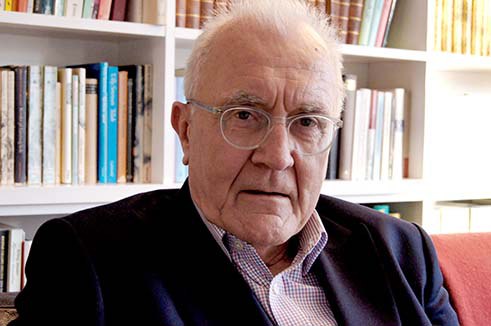Bernd Henningsen
Fredag (Friday), 10:00–10:30, H135a
Affiliering (affiliation): Nordeuropa-Institut, Humboldt-Universität zu Berlin, DEU
Abstract:
Banal Nationalism and Nordic Fun Culture
A national to nationalistic banality characterizes everyday life in Northern Europe; it is obvious to everyone, manifests itself in linguistic turns of phrase, in rituals and in many taken-for-granted aspects of political and social interaction. Since the emergence of right-wing populist movements in Norway and Denmark in 1972 and their further strengthening in the new millennium, these national banalities have become a European problem, and they have become dangerous.
But the banality of everyday life in Northern Europe also includes an omnipresent subversive joke culture that is cultivated with and about the dear neighbors; understanding it depends to a large extent on linguistic competence. The jokes that are told about the respective neighboring nation or region belong to this series of everyday narratives. Since (ethnic) jokes never invent new images of foreigners, but have to refer to known prejudices and experiences in order to fulfill a horizon of expectations that is reached by the punch line, they say something essential about national self-perceptions and perceptions of others. With jokes a communication begins – or finds its end ...
The occasional incomprehension of the European Southerners (and the Americans) about the Northerners stems in no small part from the kind of Scandinavian cheerfulness and the Nordic irony, which can not infrequently turn into sarcasm; the fact that the punch line is meant as a joke against the teller (or the own nation) is part of the fun culture. The Danish philosopher Harald Høffding (1843-1931) had already interpreted humor at the beginning of the last century as a self-confident articulation of a "view of life," as a "mood of life" and as a "total feeling" that characterizes the North - reference should be made here to Kierkegaard, by whose philosophy of life Høffding was influenced, and whom one cannot understand without an understanding of his humor; he had written his doctorate on irony in Socrates. Humor and irony are, in the philosopher's sense, "edifying correctors", they put one's own meaning into perspective, they provide the link between intellectual heights and everyday practice, they like to be grounded in common sense.
It should be emphasized that the specific feature of Scandinavian humor is not least the leavening of the punch lines with a good shot of sarcasm and self-irony – in the joke attacks against Swedes, Norwegians, Danes or Germans, a dialectical distance to oneself resonates.
Om (about):
Born 1945 in Flensburg, Northern Germany; studied political science, Nordic philology, philosophy, and psychology at the Ludwig Maximilian University in Munich; PhD in 1974; visiting professor/lecturer in Minneapolis/Minnesota, Zurich, Hamburg, Trier, Erlangen-Nürnberg, Aarhus, Odense and the Free University of Berlin; since 1992 professor of Scandinavian studies and (founding) director of the Department of Northern European Studies at Humboldt university, Berlin; 2002-03 founding director of the Alfried-Krupp-Wissenschaftskolleg, Greifswald; retired since 2010, honorary professor at the Department for Northern European Studies at Humboldt university.

